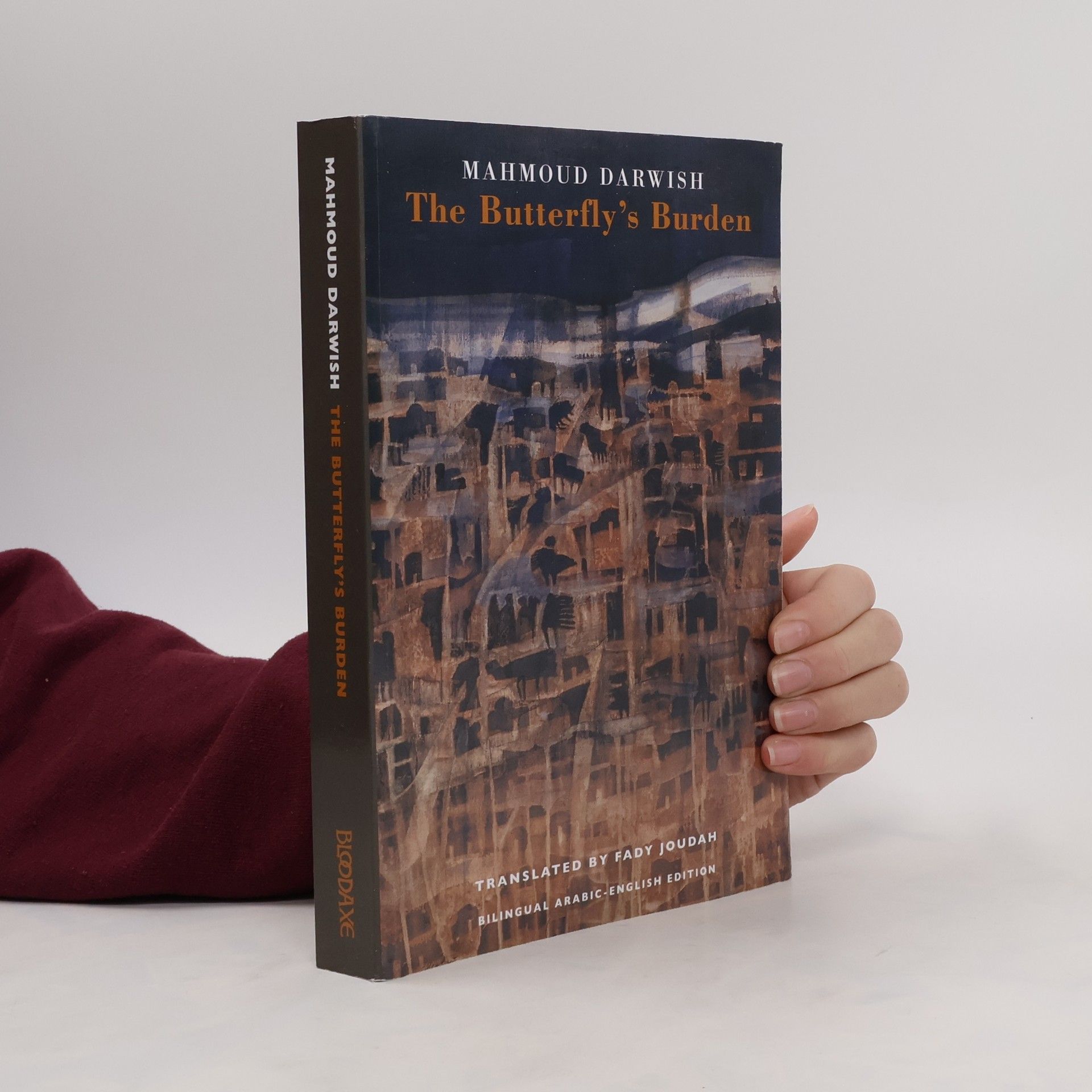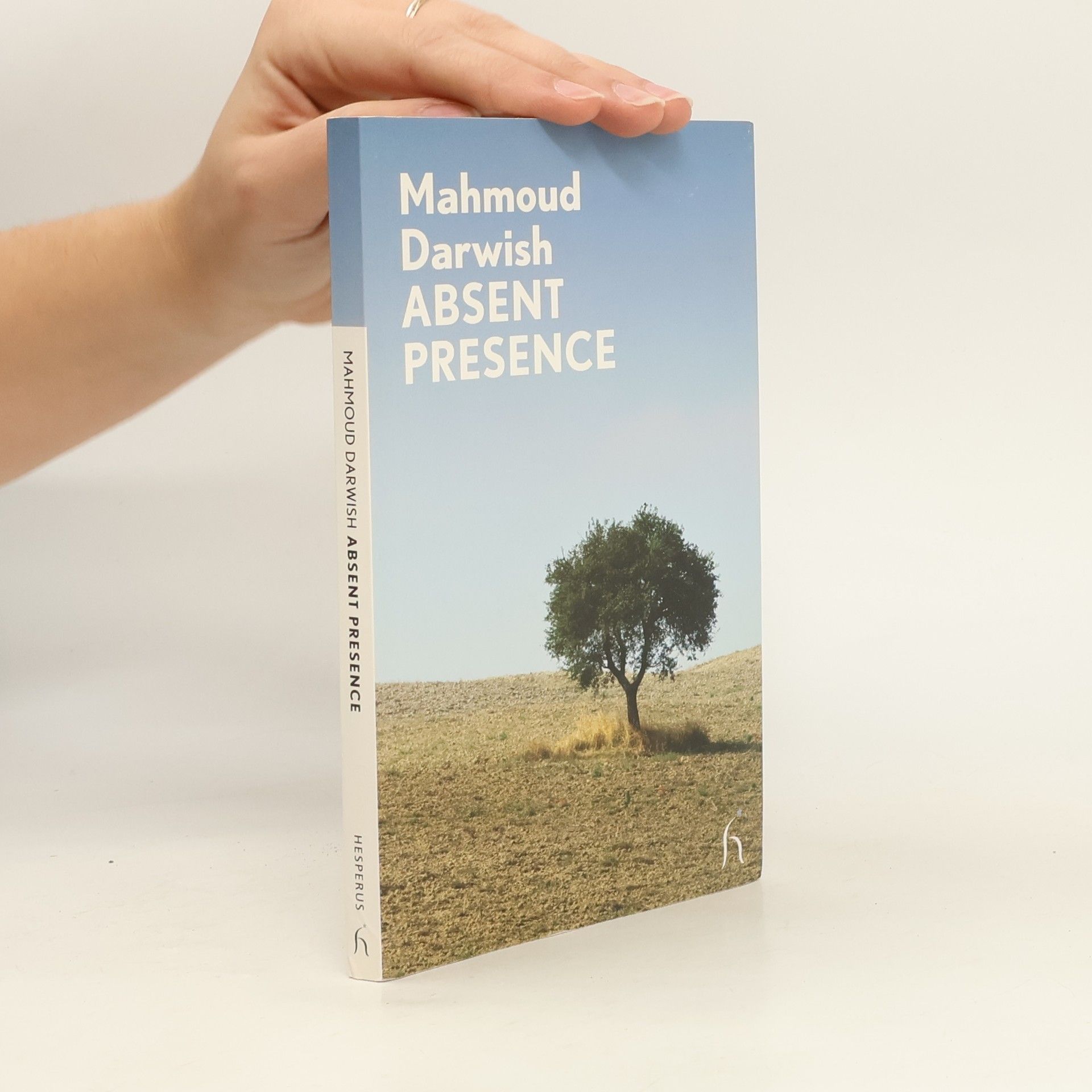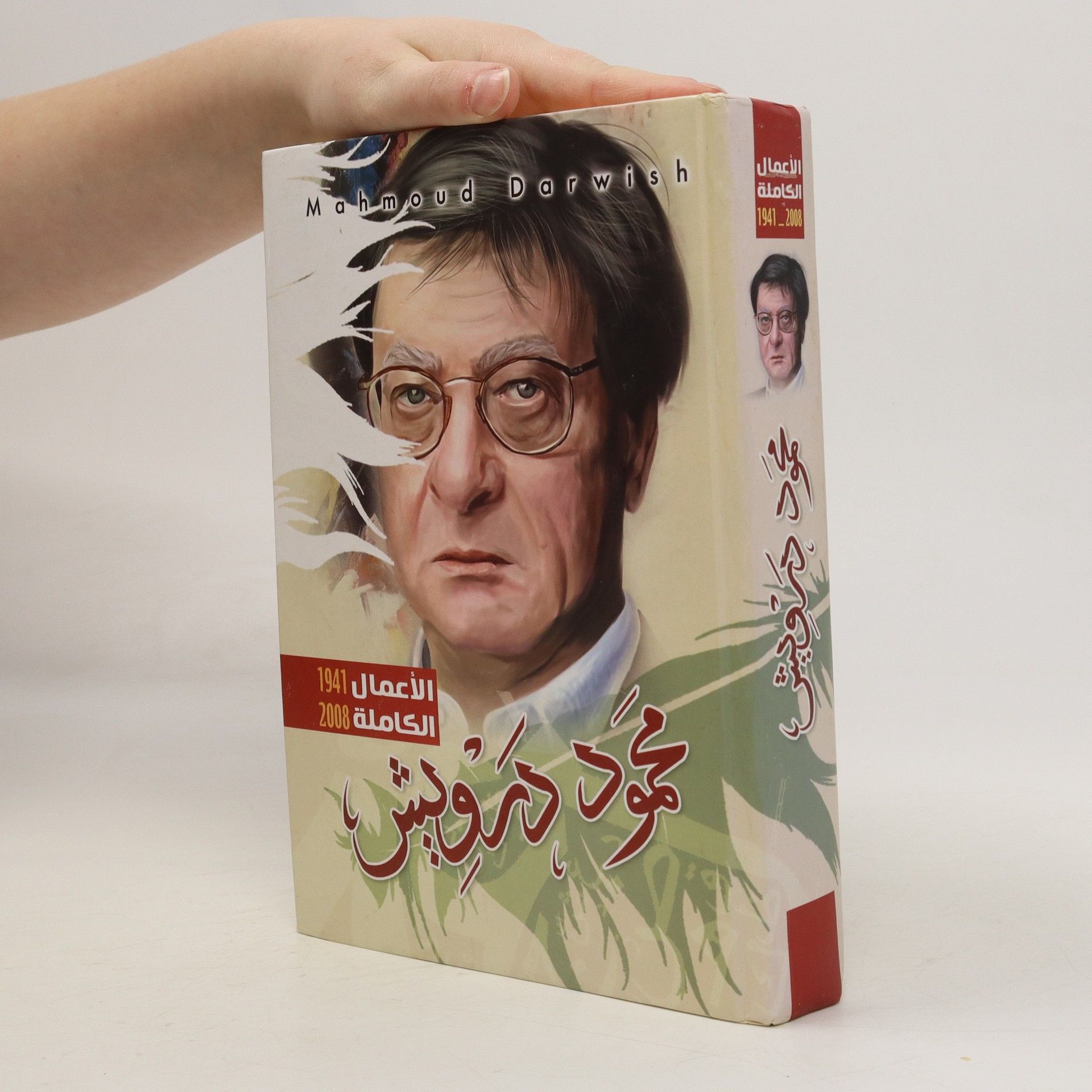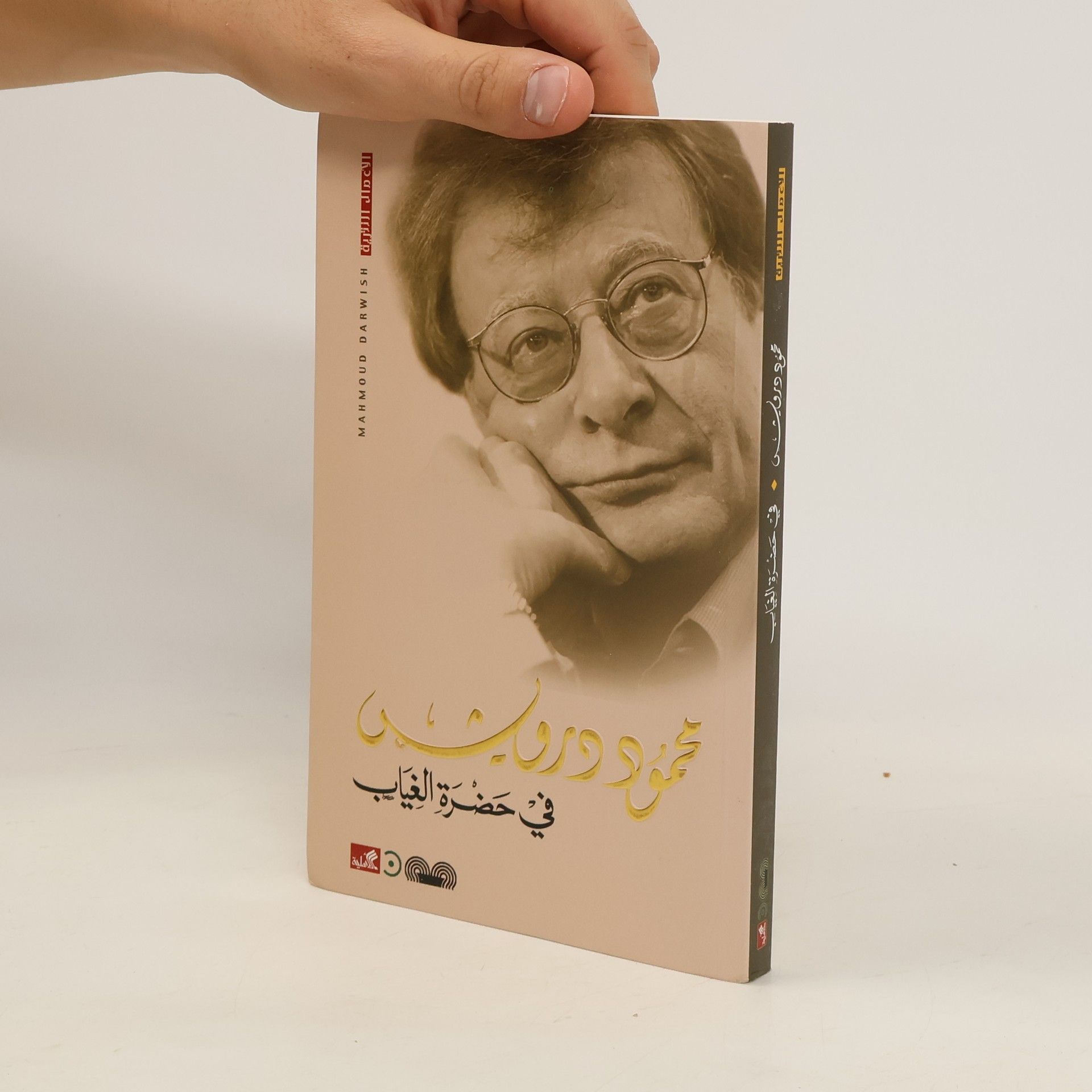A major new translation of remarkable, late poems by the great Palestinian poet
Mahmoud Darwish Ordine dei libri (cronologico)
Mahmud Darwish è stato un celebrato poeta palestinese il cui lavoro ha esplorato profondamente temi di perdita, esilio e nostalgia di casa. Ha contribuito in modo significativo all'evoluzione della poesia araba moderna, infondendola con una potente simbologia e una profonda risonanza emotiva. I suoi versi intrecciano spesso l'amore per la sua terra natale con l'amore romantico, creando un ricco arazzo di sentimenti personali e politici. Darwish ha impiegato magistralmente la Palestina come metafora dell'Eden perduto, incarnando temi di nascita, resurrezione e l'angoscia della spoliazione.






Palestine As Metaphor
- 256pagine
- 9 ore di lettura
Palestine as Metaphor consists of a series of interviews with Mahmoud Darwish, which have never appeared in English before. The interviews are a wealth of information on the poet's personal life, his relationships, his numerous works, and his tragedy. They illuminate Darwish's conception of poetry as a supreme art that transcends time and place. Several writers and journalists conducted the interviews, including a Lebanese poet, a Syrian literary critic, three Palestinian writers, and an Israeli journalist. Each encounter took place in a different city from Nicosia to London, Paris, and Amman. These vivid dialogues unravel the threads of a rich life haunted by the loss of Palestine and illuminate the genius and the distress of a major world poet.
في حضرة الغياب. In the Presence of Absence
- 182pagine
- 7 ore di lettura
Memory for Forgetfulness
- 182pagine
- 7 ore di lettura
What is the meaning of exile? What is the role of the writer in time of war? What is the relationship of writing (memory) to history (forgetfulness)? This title offers an extended reflection on the invasion and its political and historical dimensions.
If I Were Another
- 234pagine
- 9 ore di lettura
Winner of the PEN USA Literary Award for Translation Mahmoud Darwish was that rare literary phenomenon: a poet both acclaimed by critics as one of the most important poets in the Arab world and beloved by his readers. His language—lyrical and tender—helped to transform modern Arabic poetry into a living metaphor for the universal experiences of exile, loss, and identity. The poems in this collection, constructed from the cadence and imagery of the Palestinian struggle, shift between the most intimate individual experience and the burdens of history and collective memory. Brilliantly translated by Fady Joudah, If I Were Another—which collects the greatest epic works of Darwish's mature years—is a powerful yet elegant work by a master poet that demonstrates why Darwish was one of the most celebrated poets of his time and was hailed as the voice and conscience of an entire people.
Absent Presence
- 126pagine
- 5 ore di lettura
"Darwish's poetry is an epic effort to transform the lyrics of loss into the indefinitely postponed drama of return." —Edward Said, author,Orientalism Blurring the boundaries between prose and poetry, this illuminating book explores the meaning of life, the impact of exile, and an existence spent in companionship with the specter of death. Partially autobiographical and marked by a sense of loss, it examines the nature of relationships—parental, carnal, and, the most fragile of all, that with life itself. A hauntingly beautiful work, it is the first English translation of a perfect introduction to a poet of global significance.
A River Dies of Thirst
- 151pagine
- 6 ore di lettura
Written by one of the most acclaimed contemporary poets in the Arab world, who is often cited as the poetic voice of the Palestinian people, this diary records his observations and feelings as Israel attacked Gaza and Lebanon.
The Butterfly's Burden
- 327pagine
- 12 ore di lettura
Butterfly's Burden
- 326pagine
- 12 ore di lettura
A bilingual Arabic-English edition which includes translation of three books: The Stranger's Bed, A State of Siege, and Don't Apologise for What You've Done.

